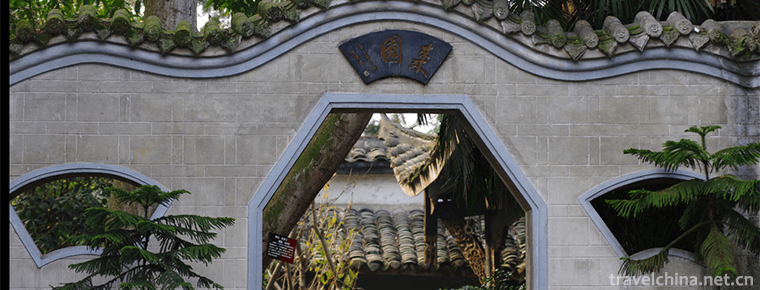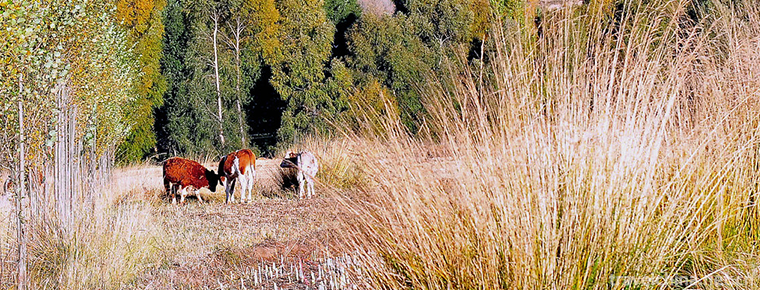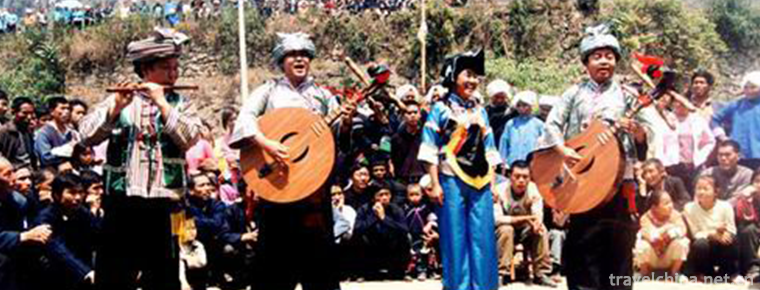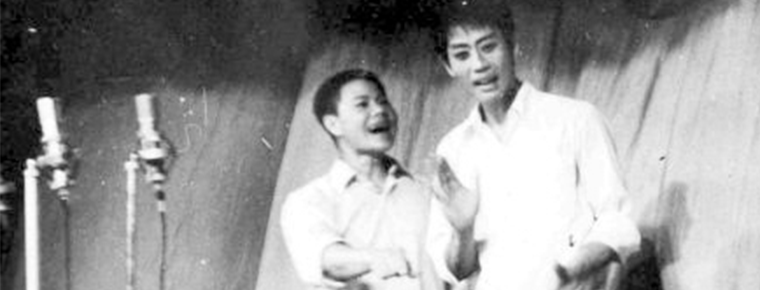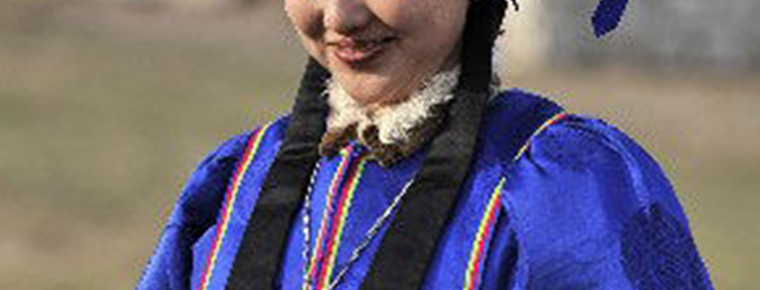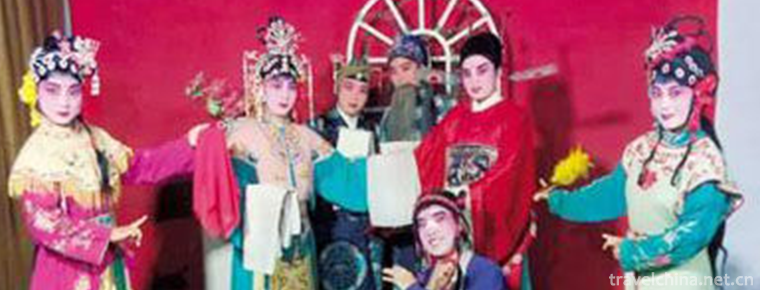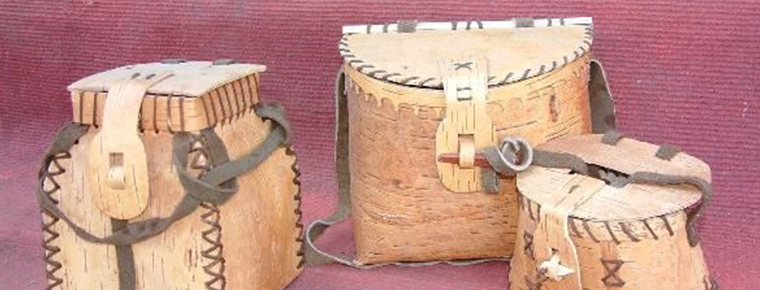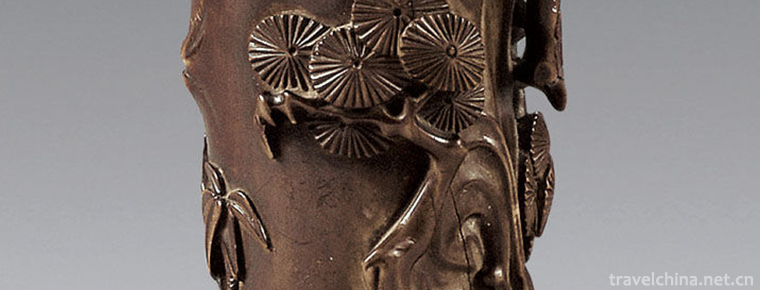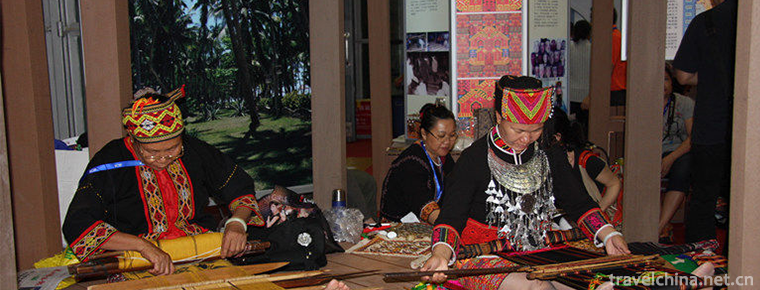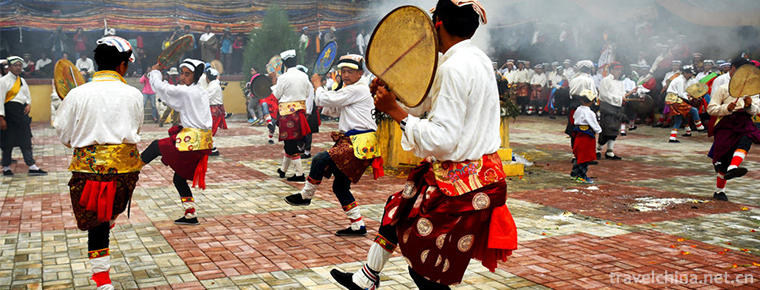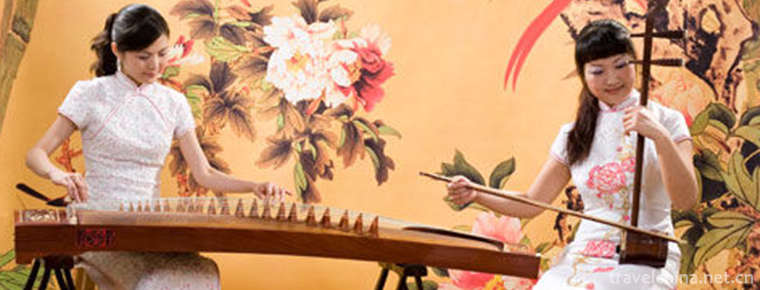Yi opera
Yi opera
Yi Opera, a local traditional drama in Dayao County, Yunnan Province, is one of the national intangible cultural heritage.
Yi Opera is popular in Chuxiong Yi Autonomous Prefecture of Yunnan Province. It was formed and developed in the traditional festivals and folk activities of the Yi people in the 1950s. Yi Opera attaches great importance to the use of music to foil and render the stage atmosphere, around different tunes, singing, and further to the rich local flavor of national music to express content. It uses the oral performances of the Yi people, pays attention to highlighting the characteristics of the metaphors often used in the dialogues of the Yi people, and implicitly expresses the psychological activities of the characters. The use of Chinese Yi accent in the dialogue can highlight the sense of humor in Yi vernacular.
On June 7, 2008, Yiju Opera was approved by the State Council of the People's Republic of China to be included in the second batch of national intangible cultural heritage lists, with the heritage number IV-136.
historical origin
origin
Since the Ming Dynasty, a large number of Han immigrants from the Mainland entered Chuxiong area, bringing the production technology of the Central Plains, but also promoting cultural exchanges between ethnic groups, Chuxiong area began to appear Yunnan Opera, lantern and other operas. Shortly afterwards, in the Yi community of Shuangbai County, a folk artist named Li Erduo adapted and performed the two-person rap program "A Zuo Divided Family" according to a story in the Bimo Sutra. His roles were not fixed, he spoke Yi, sang Yi tune, danced Yi dance, accompanied by sheepskin drums, and danced while dancing. Later, in Chuxiong County, where the Yi people live together, Yi folk artists created and performed a unique "King's Operations". Although some opera forms were adopted, the actors spoke the Yi dialect and Chinese, danced the Yi dance, reflecting the basic life of the Yi people at that time. These two artistic explorations and practices were welcomed by the Yi people, and both programs were preserved for generations. Some experts believe that these two programs are the embryo of Yi Opera.
According to the survey of folk literature after 1949, the Yi people have valuable folk literature wealth such as the Creation Epic Meige, Cham and narrative poem Eryue. Guifu's Stepping on Songs in Jiaqing, Qing Dynasty, recorded the phrase "Ni Yi Song Makes Yi Dance" and its "Continuation of Dian Ji Stepping on Songs" also recorded: "Yi Yi vulgar, men and women meet, one person plays flute, one person plays Lusheng, dozens of people sing around stepping on the ground, which is called stepping on songs." It can be seen that in the Qing Dynasty, the folk singing and dancing activities of the Yi nationality had become popular, and there were still some religious ritual activities among the Yi people. In these activities, Bimo's recitation of narrative poems was closely related to the production of the Yi drama.
According to the records of the Literature Group of Yunnan Folk Literature Investigation Group in 1958. During the reign of Qianlong, the narrative poem "Eryue" (i.e. the separation of Azo) and "Bimo" (also known as "Beima") Li Duo-er of the bottom soil were once circulated in Anlongbao area of Shuangbai County. They used the tune of reciting the Beima Sutra to sing the story in front of the coffin at night. By the end of the Qing Dynasty, this form of singing developed into a form of mutual questions and answers, and occasionally performed with knives, forks and other props. This kind of performance was initially confined to singing during the wake of the spirit, but later came out of the hall and the village and sang during the holidays or leisure time. Other folk activities of the Yi people also have some simple forms of performance. For example, when the Yi people in Ma You Township of Yao'an County are married, they must sing the section of "cherishing relatives" in the epic "Meige". In addition to the regular recital of the host (male) and guest (female), there is also a performance of the bride doing farm work. Locals call it "dumb". In some villages where Yi and Han live together, before 1949, the Han Lantern Club retained a number of repertoires reflecting the lives of the Han and Yi people, using Yi dances and traditional folk songs. Among them, the play "King Cao Bing" is prominent. It uses the music and dance of the Yi people and even the spoken language of the Yi language to perform, showing the activities of the Yi people to worship the landlords. Some people call this kind of drama Yiju, and others call it Yizu lantern.
Development
Luo Shouren and Li Fengzhang, private teachers of Zhiyi Township, Yongren County, were the earliest dramatic performances of the Yi people in Chuxiong in the thirty-sixth year of the Republic of China (1947). In order to mock the reality, young Yi people were invited to perform their plays such as "Commissioners going to the countryside" and "Singles County Officials" in Yi language, Yi songs and Yi dances. However, because these activities were against the government at that time, and because of ethnic discrimination and other reasons, this activity could not be popularized.
After 1949, the political, economic and cultural life of the Yi people received the attention and support of the people's government. In 1952, the people's government sent medical teams to Yongren to prevent and treat diseases. Local amateur Yi literary and artistic amateurs cooperated with the medical teams to publicize and compile the singing program "Cure as soon as possible". Since then, some Yi villages have also appeared to use traditional songs and dances to fill in new words to sing propaganda programs of current affairs policy. During the cooperative movement in 1956, rural clubs were generally established in Yi villages. Yang Sen, a private teacher in Makangfang, Xinhua District, Dayao County, was originally a Yongren Zhiju. He personally watched Luo Shouren and Li Fengzhang's "Commissioner Going to the Countryside" and was deeply impressed. So a group of backbone members of the club, following the practice of teachers Luo and Li, created and performed dramatic performances such as Wolf Comes, Shepherd in the Wood, Midnight Sheep Call, Two Ploughs and Who is the Doctor. At that time, the Yi people in Xinhua Mountain called this form of performance Yi opera.
In April 1958, at the Chuxiong State Celebration Conference, the amateur theatre troupe of Maqiangfang Club of Xinhua Mountain in Dayao County performed the opera "Midnight Sheep Call", which was modified and had dramatic characteristics. In December of the same year, the Ministry of Culture convened a conference on ethnic culture in Southwest China in Dali. The amateur theatre troupe of the Red Banner People's Commune of Dayao County gave performances such as Midnight Sheep Call, which was affirmed by the delegates and Xia Yan, Vice Minister of the Ministry of Culture.
After the birth of Yi Opera, it was introduced by the public to the provinces and beyond. In January 1962, Yunnan Province held a national theatre performance conference. The Yiju delegation of Chuxiong Prefecture processed and performed four Yiju operas, Midnight Sheep Call, and created and performed three Yiju operas, Manju and Major. After the meeting, the troupe toured Yiliang, Lunan, Qujing, Xuanwei and other places in the province. In 1963, "Selected Dramas of Ethnic Minorities" published by China Drama Publishing House and "Flowers of Yunnan Brothers'Ethnic Dramas" published by Yunnan People's Publishing House collected the above two dramas. In this stage, Yi Opera mainly takes part in amateur activities, so it is difficult to accumulate and improve its repertoire creation and performance art. For these reasons, the development of Yi Opera has been slow since 1962, when the ethnic drama of the whole province watched and performed, and before the "Cultural Revolution", and the scope of its activities is limited to the Dayao Xinhua Mountains.
In June 1966, when the "Cultural Revolution" began, Yi opera artists were persecuted, amateur Yiju troupes were disbanded and Yiju activities ceased.
After the end of the Cultural Revolution, especially after the Third Plenary Session of the Eleventh Central Committee of the Communist Party of China in 1978, the development of Yi Opera has attracted the attention of relevant departments. The amateur performance of Yi Opera has developed from one county to all counties in the prefecture, and professional cultural teams in seven counties have created and performed Yi Opera in succession.
In December 1980, Chuxiong Prefecture held an amateur literary and artistic performance of farmers in the whole prefecture. Dayao and Yongren County performed Yioperas such as Qingqing Mountain Forest and Under the Walnut Tree. They took the lead in using Chinese Yi pronunciation (speaking Chinese with Yi pronunciation), breaking the limitation of using Yi as the stage language, expanding the audience and communication, and making Yioperas more popular. The impact of the performances extended to the adjacent prefectures, counties and provincial cities.
In September 1982, Yi Opera "Two Parents of the Opera House" and "Chad En Ta" were selected to participate in the modern opera performance of Yunnan Opera.
Cultural characteristics
Script
The literary style of Yiju plays is composed of prose style, seven-character style and ten-character style. The dialogues of the characters are written in Chinese Yiqiang and embellished by the way of comparison and revision which the Yi people are good at. In music, the folk songs of various branches of the Yi nationality in the city are used as materials for composing music. In the performance, based on the activities of the Yi people and drawing lessons from the performance skills of other operas, a series of actions have been developed, such as gay step, welcome step, seeing off step, working climbing step, bent step and falling step. Most of the subjects of Yi opera reflect the modern life of the Yi people, and the characters in the opera give the audience a strong sense of intimacy.
Music for voices in a Chinese Opera
Yi Opera has a single aria with simple structure, mainly one sentence, two sentences, four sentences, six sentences, eight sentences and multiple sentences, and also can be divided into two, three and four paragraphs according to paragraph to multi-paragraph body; some are composed of scattered board, adagio, medium board and fast board according to the speed of change; and some are also tunes. With lyrics running, sentences or paragraphs are not very regular. In the form of singing, there are solo, duet, chorus, lead accompaniment (that is, the local Yi people said in the year of "cacophony", "cacophony"), duet, chorus and so on.
Music
Music, as an important part of the art of Yi Opera, is an important vocabulary for describing regional characteristics and emphasizing the personality of characters. The music of Yi Opera is composed of folk songs minor (such as Meige tune), Manmo tune, cross-mountain tune, etc.), dance music and instrumental music (such as "Lusheng song", "Yueqin song", "Suona song", etc.), and is called "mountain song style".
Representational repertoire
The main representative repertoires of Yi Opera are "Midnight Sheep Call", "Man and Maro", "Two Families of the Opera House", "Chad Enda", "Silver Lock", "Palmer" and so on.
Inheritance and Protection
Inheritance value
Yi Opera has distinct characteristics of the times, local characteristics and strong national style. The props used in the performance are commonly used by the local Yi people, while the clothing and headdress are hand-crafted by Yi women. It truly reflects the social life of the Yi people and the national spirit, religious beliefs and value orientation of the Yi people. It is of great value in the study of minority art and anthropology, ethnology and folklore.
Heritage figures
Li Mao Rong, male, Yi nationality, was born in 1944. Li Mao-rong was selected as the representative successor of the third batch of national intangible cultural heritage projects and declared in Dayao County, Chuxiong Yi Autonomous Prefecture, Yunnan Province.
protective measures
In 2018, Dayao County invested in filming the national intangible cultural heritage protection project "Yi Opera" microfilm, using the original Chinese Yi accent, telling the world that Yi Opera was born in Dayao in the form of Yi dialect feature films. Dayao County has published the book "intangible cultural heritage of Dayao County", providing various photographs and articles for various units to use, so that the protection of intangible cultural heritage has permanent electronic and audio-visual information, for the inheritance and protection of "non-heritage" weave a "protection net" and build a "protective wall".
social influence
Honorary recognition
In 1985, Chuxiong Yi Opera Troupe participated in the second national drama performance in Yunnan Province, performing four Yi operas: Silver Lock, Mittany Shop (later changed to Naughty Shop), Dancing Song Playground and Spring Dang Yi Mountain. Among them, "Naughty Shop" script has been published by the monthly "script" magazine, and won the silver prize in the National Drama Creation Award activities.
Important activities
From August 11 to 15, 2009, the First International Symposium on Yi Opera was held in Chuxiong, Yunnan Province, co-sponsored by the South China Academy of Art, Yunnan Provincial Culture Department and the People's Government of Chuxiong Yi Autonomous Prefecture.
On June 26, 2011, a large-scale Yi opera "Yang Shanzhou" was premiered in Chuxiong Yi Autonomous Prefecture, Yunnan Province, with the deeds of Yang Shanzhou, an outstanding member of the Communist Party of China as the main line.

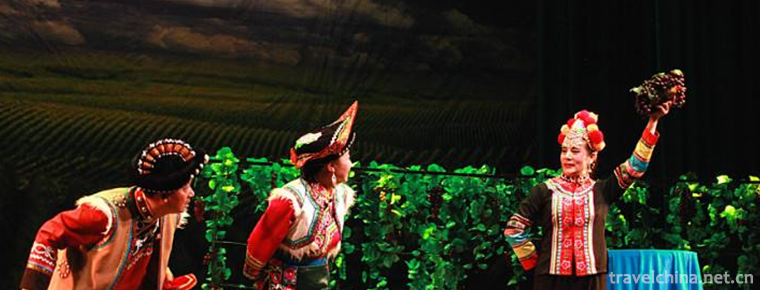
-
Xijiashan Folk House
Xijiashan Residence, a national key cultural relic protection unit and national AAAA-level tourist attraction, is located in Xijiashan Town, Jiang'an County, Yibin City, Sichuan Province.
Views: 491 Time 2019-02-25 -
Yanzhi Mountain Forest Park
Yanzhi Mountain Forest Park is located 45 kilometers southeast of Shandan County. The Gejunma Grassland is opposite to Qilian Mountain.
Views: 103 Time 2019-02-28 -
Buyi Folk Songs
Bouyei folk songs have special features, such as ancient songs, narrative songs, love songs, wine songs and labor songs; solo, duet, chorus and duet in form; tunes are divided into major and minor. Ev.
Views: 144 Time 2019-04-04 -
Answer drum
Answer drums are popular in Quanzhou City, Fujian Province, other areas in southern Fujian Province and Taiwan Province, Hong Kong and Macao, as well as among overseas Chinese.
Views: 170 Time 2019-04-22 -
Ewenki costumes
The Ewenki people belong to the Tungusic race, and their clothing materials are mainly animal skins, as do the Tungusic people such as Manchuria and Xibo..
Views: 265 Time 2019-04-28 -
Haha Opera
Haha Opera, also known as Liuzi Opera and Drinking Opera, is a local opera originated from the folk in Hebei Province. It is the first national intangible cultural heritage.
Views: 210 Time 2019-05-02 -
Craft of birch bark making
Birch bark making techniques, Oroqen Autonomous Banner of Inner Mongolia Autonomous Region, local traditional handicraft of Heilongjiang Province, one of the national intangible cultural heritage..
Views: 174 Time 2019-05-04 -
Yueqing Poplar Wood Carving
Yueqing boxwood carving, a kind of ornamental round carving art with boxwood as its material, is mainly popular in Houhengcun, Wengyuan Street and Lecheng Street of Liushi Town in Yueqing City,.
Views: 103 Time 2019-05-11 -
Traditional Textile Dyeing Weaving and Embroidery Techniques of the Li Nationality
The traditional spinning, dyeing, weaving and embroidery techniques of the Li nationality, the traditional handicraft techniques of Hainan Province, are one of the national intangible cultural heritag.
Views: 92 Time 2019-05-12 -
June meeting in Regong
Regong June Festival is a unique traditional cultural festival of Tibetan and Tu villages in Tongren County, Qinghai Province. It has been circulated for more than 1400 years. Every June in the Lunar .
Views: 93 Time 2019-06-11 -
String Music Heze String Music
Heze string music is one of the second batch of national intangible cultural heritage announced by the State Council. It is a well-known traditional folk music in southwestern Shandong Province, and i.
Views: 228 Time 2019-07-01 -
Cross stitch of Chinese embroidery
The earliest cross stitch was embroidery on animal fur fabrics with silk extracted from silkworm cocoons. Later, it was used to decorate clothes and furniture. Cross stitch, with its simple embroidery method, noble and gorgeous appearance, exquisite .
Views: 326 Time 2020-12-12
